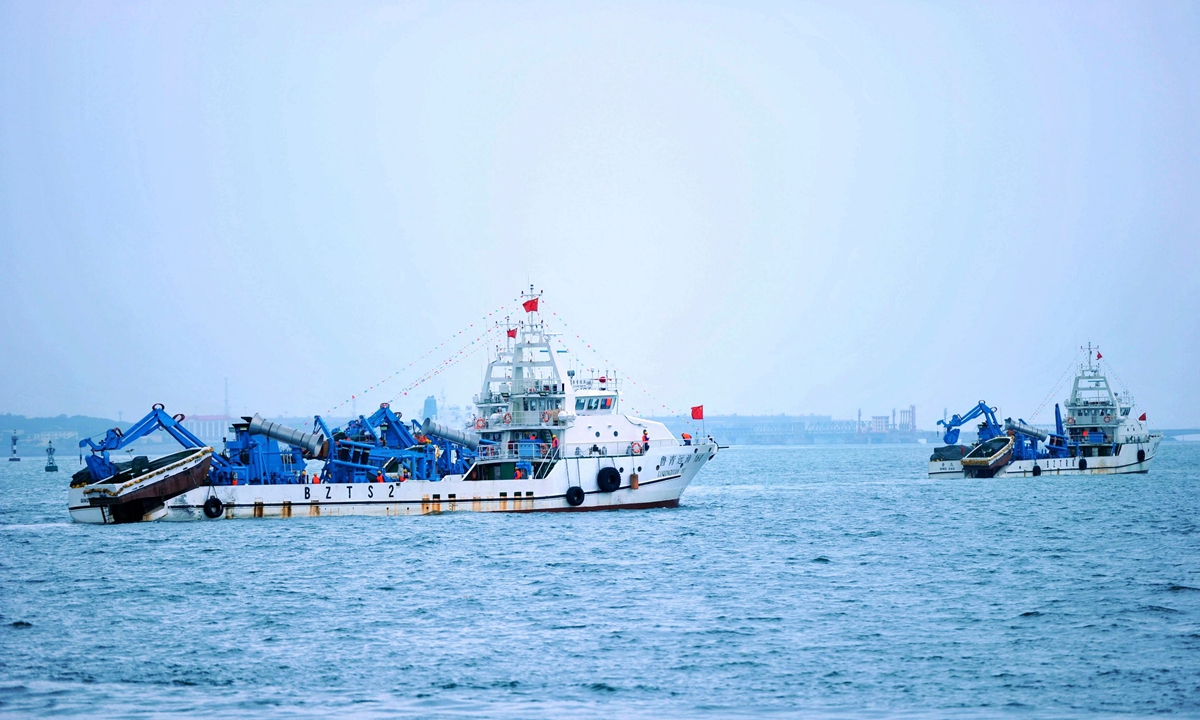
A fishing fleet sails toward the Indian Ocean in Qingdao, East China's Shandong Province, on August 29, 2018. Photo: VCG
After failing to sway the Solomon Islands on the security cooperation with China, the US has turned to a new target, China's fishing activities.
The superpower will soon announce plans to battle "illegal" fishing in the Pacific, seen as another step to suppress China's normal activities and cooperation in the region under US Indo-Pacific strategy.
US Indo-Pacific coordinator Kurt Campbell made the announcement on Monday, claiming that "one of the biggest challenges in the Pacific is in fact illegal fishing," when asked about growing cooperation between China and the Solomon Islands, according to the Reuters.
Reuters cited several unnamed countries in the Indo-Pacific region as saying they "chafe at China's vast fishing fleet," claiming the countries have said China's vessels "often violate their exclusive economic zones and cause environmental damage and economic losses."
Taking the smearing of the cooperation between China and Solomon Islands as a starting point, the US is now targeting China's fishing activities by attacking its legitimate presence and economic interests in the region to further obstruct China's various normal and mutually-beneficial cooperation in the Pacific, said Chen Hong, president of the Chinese Association of Australian Studies and director of the Australian Studies Center at East China Normal University.
China has a traditional fishing cooperation with Pacific island nations, including the Solomon Islands, the expert poointed out. Chen told the Global Times on Tuesday that the bilateral fishing cooperation programs, which include rules on areas where fishing is legal, are beneficial to both local fishermen and the fishing industry.
Seeing the huge benefits of such collaboration, some countries that have not reached fishery cooperation with China or achieved fishery reciprocity with China started to use the so-called "illegal" fishing activities to stir up trouble, Chen said.
China is a responsible fishing country that has been cooperating internationally to clamp down on illegal fishing. For example, its fishery authorities have introduced punishments for overfishing and illegal fishing by the country's distant water fishing vessels, according to media reports.
The US is worried about Chinese ships coming ashore, connecting normal fishing operations to building a military base, Chen said, adding "this is out of a Cold War mentality, demonizing normal economic activities, turning normal fishery cooperation into a security concern."
Campbell led a US delegation to the Solomon Islands last month. Washington said it would have "significant concerns and respond accordingly" to any steps to establish a permanent Chinese military presence there, according to Western media.
Washington's plan to obstruct China's fishing in the Pacific came after it failed to prevent the Solomon Islands from signing the security agreement with China, which was widely regarded as its Waterloo for its hegemony strategy in the region.
Chinese experts noted that Washington sees the South Pacific as an important "fulcrum" against China as it has sought to further push forward its Indo-Pacific strategy through the region.



